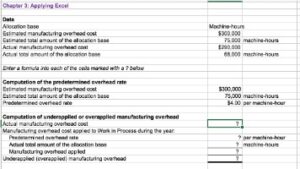Content

The main income tax withholdings from an employee’s paycheck include local, state and federal income taxes. All staff members have to fill out a W-4, the Employee’s Withholding Certificate. In it, they have to declare their tax deductions, with special consideration to the number of people in their family. You have to cross-check with the IRS tax charts in order to determine the deductions that apply. That’s how you will get the amount of payroll taxes that have to be withheld.

Gross and net pay can vary significantly for full-time and part-time employees as well as salaried and hourly employees. After taxes and deductions, an employee’s take-home pay could be hundreds or even thousands of dollars less per pay period. As a wage employee who’s paid hourly, there are two ways to calculate your gross income. If you have monthly payslips Gross Pay Versus Net Pay for the previous year, simply add each month’s gross income together to find out your annual gross income. To figure out your gross pay from your net pay, you have to know how much you paid in taxes, benefits and garnishments from a given paycheck. Your net pay plus the amounts you paid in taxes, benefits and garnishments equal your gross pay.
How to calculate gross pay for an hourly employee
This is because salaried employees receive a fixed amount of pay for each pay period, regardless of the number of hours they work. It’s important to keep in mind that overtime pay may need to be factored in for hourly employees who work more than 40 hours per week. In the United States, overtime pay is generally calculated at a rate of 1.5 times the employee’s regular hourly rate for any hours worked over 40 in a single workweek. It’s important to note that gross pay may also include other forms of compensation such as bonuses, commissions, and overtime pay.
- For advanced capabilities, workforce management adds optimized scheduling, labor forecasting/budgeting, attendance policy, leave case management and more.
- Gross pay also includes any imputed income, known as fringe benefits.
- The period can be a week, month, or even year, but in all cases, you must use the gross hourly wages that you have set when hiring the employee.
- We’re firm believers in the Golden Rule, which is why editorial opinions are ours alone and have not been previously reviewed, approved, or endorsed by included advertisers.
- It’s important to correctly classify employees as hourly or salaried, as this can affect how their pay is calculated.
- The catch is that you need to determine all the various tax rates and other obligatory and voluntary deductions that apply to this particular person.
They would then calculate the taxes owed based on their taxable income and the applicable tax rates. If the individual had too much tax withheld from their pay during the year, they would receive a refund of the excess amount when they file their tax return. Conversely, if they had not had enough tax withheld, they would owe additional taxes when they filed their return. By reconciling gross and net pay, the government can ensure that individuals pay the correct amount of taxes owed on their income. The specific tax rate used for a given employee will depend on their taxable income and filing status.
Is Gross Pay Bigger Than Net Pay?
Understanding the difference between the two can help employees budget and plan their finances and help employers accurately calculate and track the compensation they provide. To determine the total number of hours worked by the employee during the pay period, obtain either the employee’s timesheet or attendance record. Unionized workers may have to pay for membership and taxable perks. These employer-sponsored plans allow employees to contribute a portion of their income to a retirement account on a pre-tax basis. Employers may also choose to match a portion of the employee’s contributions. Group-term life insurance policies are not transferrable, so employees who leave their jobs lose coverage.
What is an example of gross income?
You simply add up all of your income sources before any tax deductions or taxes. For example, if last year you earned $100,000 in salary, $1,000 in interest income, and $12,000 in rental income, your gross income for the year would be $100,000 + $1,000 + $12,000 = $113,000.
Net pay can be significantly different from gross pay, depending on individual deductions. Information provided on Forbes Advisor is for educational purposes only. Your financial situation is unique and the products and services we review may not be right for your circumstances. We do not offer financial advice, advisory or brokerage services, nor do we recommend or advise individuals or to buy or sell particular stocks or securities. Performance information may have changed since the time of publication. Like the federal government, many states use progressive tax brackets, but others have no income tax at all.
Differences between Gross Pay and Net Pay
Net income will be this amount after all relevant tax and other deductions. Some deductions are voluntary, or the level of deduction can vary in line with employee preference. For example, an employee may choose to receive a higher level of pay in the form of pension contributions than cash in order to reduce the tax they pay.

The net pay listed on the payroll register shows you how much you paid employees through direct deposit, check, or cash. Gross pay serves as the foundation for an employee’s payroll calculations. You use it to calculate tax payments and an employee’s overtime. Keep in mind that health benefits and retirement contributions are considered pre-tax deductions.
Should gross pay equal salary?
Contractors generally receive the gross pay amount but must then meet their own tax and other liabilities. Once you know the gross annual pay and the total number of annual pay periods, actually calculating the gross salary per pay https://quick-bookkeeping.net/invoice-requirements-eu-vat/ period is relatively simple. Contracts for salaried employees dictate base gross payment amounts upfront and stipulate conditions for bonuses or other performance-based incentives that might contribute to gross pay later on.
What is a net pay?
What is the meaning of net pay? Net pay means take-home pay or the amount employees earn after all payroll deductions are subtracted from their gross pay.
You can learn more about the standards we follow in producing accurate, unbiased content in oureditorial policy. Creating a realistic monthly budget can help you see and understand exactly where net pay goes each month . Retirement plans are a great way to save for the future and receive tax benefits.
Gross income vs. net income in business
The FICA tax is deducted from the employee’s taxable income (after you deduct, for example, the retirement contribution pay, and make other potential pre-tax deductions). However, be careful when calculating your gross pay in advance as there are different situations that may affect your gross income to take into account. On the other hand, you may take some time off and your employer doesn’t offer paid days off. Another type of mandatory deduction is mandatory wage garnishments that are legally withdrawn from an employee’s gross income if they’ve been in a lawsuit and they’ve lost. In this case, the employer is in charge of transferring the designated amount of money to the person or an institution that won.
Schreibe einen Kommentar